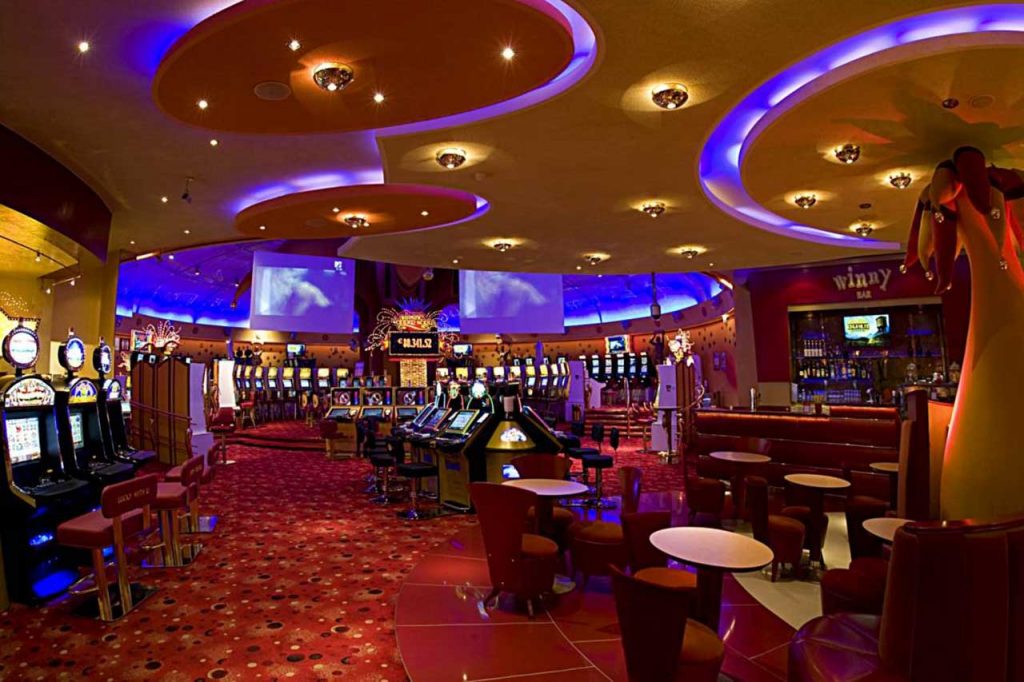A Societal Impact of Casino Activities Worldwide

Casino games have long been a engaging source of amusement, drawing numerous of players from varied cultures around the globe. From the glitzy casinos of Las Vegas to the busy gambling halls of Macau, these games serve as a link that unites people across different backgrounds. The allure of chance, tactics, and gambling entices not only those hoping to gamble for profit but also those in search of a sense of community.
The significance of casino games extends significantly past the gaming floor. They often reflect the values and beliefs of the communities in which they flourish. Games such as seven-card stud, blackjack, and the spinning wheel have integrated into the tapestry of cultural phenomena, influencing various aspects from cinema to fashion. As we explore this captivating intersection of gambling and life, we can gain insights into how gambling games shape and are shaped by the surrounding world.
Historical Progression of Gambling Activities
The origins of casino activities can be traced back to old civilizations, where gambling in different forms was widely practiced. non GamStop sites In Ancient China, around 2300 BC, a type of gambling known as Keno was well-known, while in ancient Rome, soldiers would often gamble on the results of their games. The concept of using randomness for entertainment and profit evolved over the ages, leading to the formation of more structured activities. By the end of the Middle Ages, gambling houses initiated to surface in Europe, particularly in Italy, which introduced early incarnations of famous activities still played today.
As betting gained fame in European regions, the 17th and 18th centuries saw the emergence of casinos as dedicated locations for gambling. The earliest official casino, the Ridotto, was established in the Venetian city in sixteen thirty-eight, offering activities like the game of Baccarat and Faro games. This time marked a crucial shifting point, as casinos commenced to draw not just the high society but also the burgeoning middle-income class. The sophistication of activities evolved, leading to the development of new regulations and versions that enriched the play experience.
In the 19th century, the era of industrialization and shifts in social norms additionally altered the landscape of gambling games. The arrival of roulette and new slot machines attracted a more diverse audience, and gambling establishments became seen as legitimate recreation. This time witnessed the international spread of gaming, as casinos extended from the continent to the New World, culminating in the establishment of the iconic Las Vegas Strip in the twentieth century. The progress of gaming games has persisted into the modern era, including new technologies and digital sites, rendering them accessible to a worldwide market.
## Cultural Relevance across Diverse Communities
Gambling games have profound social importance in many cultures across the world. For instance, in Las Vegas, the very core of the city is woven around gambling establishments, where gambling is not just a hobby but a fundamental aspect of leisure and social interaction. The bright lights and vibrant atmosphere attract a vast audience, showcasing how games of chance can shape local economical structures and local cultures. This setting transforms the notion of recreation into an enriching encounter that shapes apparel, sound, and even cinema.
On the other hand, some cultures view betting with greater care, seeing it through the lens of morality and customs. For example, in various Eastern cultures, games like Mahjongg and Pai Gow Poker are rich with history and possess significant social meanings. These games are often played during get-togethers and celebrations, fostering collective connections and reinforcing family ties. The act of engaging in these games goes above mere leisure, reflecting ethics such as deference to seniors and the importance of communal fun.
Meanwhile, in Western countries such as Monte Carlo and Rome, gambling activities serve as symbols of wealth and sophistication. The refined atmosphere of these establishments attracts both travelers and locals, upholding a sense of distinction and elitism. The art of poker and the strategic features of games like banker’s game are celebrated, influencing social dynamics and establishing an allure that captivates a heterogeneous audience. This emphasizes how gambling can concurrently mirror and mold cultural perspectives towards danger, reward, and community interaction.
Economic Impact and Travel Industry
Gambling activities play a crucial role in the economic landscape of many regions, particularly those that depend significantly on tourism. The revenue generated from gambling establishments fuels local economies, creating employment opportunities not only within the casinos but also but also in connected industries such as hotel management, restaurant services, and entertainment. This influx of tourists, drawn by the attraction of gambling and the overall casino experience, stimulates spending across multiple businesses, contributing to the economic health of the area.
The presence of casinos often leads to the construction of facilities, including lodging, transportation systems, and leisure amenities. These developments are essential in improving the overall tourist experience, making locations more attractive to tourists. Additionally, many casinos contribute in local communities through support of activities and philanthropic activities, further embedding themselves into the community structure of the region. Such investment not only supports economic growth but also cultivates a positive image of the gambling sector.
Furthermore, the global popularity of casino games drives competitive tourism, with regions vying to attract players from around the world. Iconic destinations like Las Vegas and Macau have become identifiable with casino culture, drawing millions each year. This competitive edge encourages creativity and variety within the gaming industry, influencing trends in leisure and hospitality that extend beyond their borders. The consequences of this tourism extend far, impacting local economies and cultural interactions on a worldwide scale.
